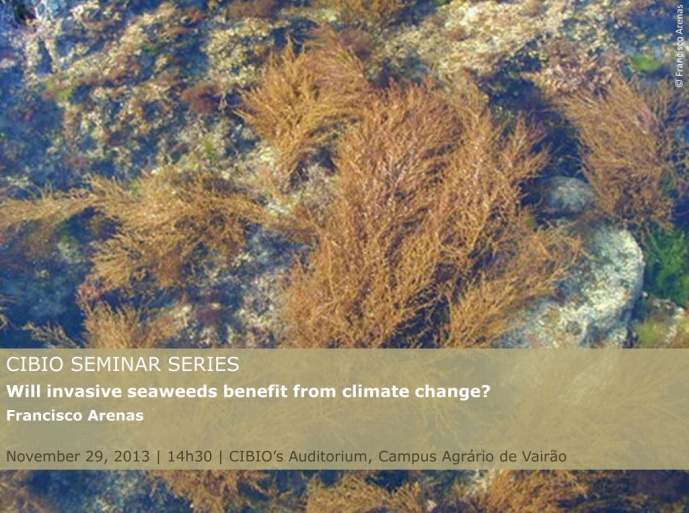WILL INVASIVE SEAWEEDS BENEFIT FROM CLIMATE CHANGE?


The new environmental scenarios created by global climate change may increase the risk and the consequences of biological invasions on coastal habitats. Average atmospheric and sea surface temperatures are increasing and excessive CO2 continues to dissolve in the oceans, causing acidification. We studied the effects of these two climate‐driven stressors, both in natives and invasive macroalgae, aiming to examine if invasive species will perform better in the predicted future environmental conditions. Here I present results from different experiments using mesocosms where we increased temperature and CO2 partial pressure in a fully orthogonal experimental setups. As species performance proxies we used fitness related responses like growth and photosynthetic performance (PAM). In general our results show that future high concentrations of CO2 generated a highly productive response, and this was similar with future high temperatures. However, a synergistic interaction between the two environmental factors was the most frequent response when both stressors where combined. Also invasive seaweeds performed better than natives in overall. Thus, species responses to future global changes are unpredictable from single stressors experiments.
Francisco Arenas is a marine ecologist-phycologist working as Researcher at CIIMAR, Porto. The core of his research interests is experimental ecology, using coastal organisms and communities as model systems. Since the beginning of his career, Francisco’s research has developed in a number of distinct areas. 1) Marine Invasions: This is probably Francisco’s first research topic since his PhD back in Spain and focused on the invasive macroalgae Sargassum muticum. 2) Biodiversity: why and what for? Francisco tries to help in the hard task of understanding diversity patterns and the functional consequences of diversity in marine systems. 3) Mechanistic approaches to understand and predict the effects of climate change on coastal populations and ecosystems.
Image credits: Francisco Arenas